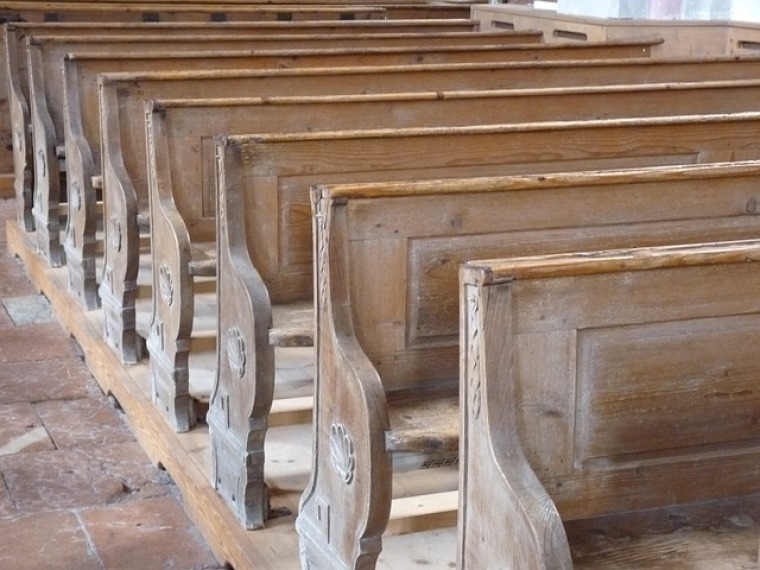Study links decline of church attendance to rise of Christian Right

A recent study has suggested that the rise of the Christian Right is partly responsible for the declining church membership in the U.S.
The report published in Political Research Quarterly in late April showed that the percentage of religious nones have increased in states where the Christian Right have gained prominence.
The study was based on data from the Cooperative Congressional Election Study and reports from several interest groups between 2000 and 2010.
The authors of the report contended that the major contributing factor in the decline in church membership was the "salient controversy," in which the Christian Right has been seen as "more salient to the public" because of the debate on controversial topics.
One of the examples cited by researchers was the increase in the number of people abandoning their religion in states that implemented bans on same-sex marriage.
The lead author of the study, Paul A. Djupe, said that he was taken by surprise when he found out that "the link between the presence of Christian Right organizations and the religious nones was limited to states with 'salient controversy.'"
"Since many states enacted same-sex marriage bans (and like legislation) in the mid-2000s, that means that the salient controversy was relatively widespread and was more common in somewhat redder, more conservative states," Djupe, a political science professor at Denison University, said in an interview with The Christian Post.
"So, the other surprising finding was that the difference in rates of religious nones between Republican and Democratic states narrowed across this time period (on average)," he added.
The study, co-authored by University of Wisconsin-Madison Assistant Professor Jacob Neiheisel and University of Cincinnati Assistant Professor Kimberly Horn Conger, suggested that the situation facing the Christian Right was similar to a time when membership in mainline Protestant churches declined during the 1960s due to Religious Left activism.
A study by Neiheisel and Djupe in 2014 has indicated that the Christian Right was not a significant factor in people's decision to leave churches.
The research, titled "The Choice That Matters: Politics in the Role of Leaving Congregations," also revealed that mainline Protestants are more likely than evangelicals to abandon their churches because of politics.
In May last year, the researchers published a more recent version of the study in the American Journal of Political Science.
Last March, Neiheisel suggested that the number of people departing their churches over politics was just "a little churn."
He argued at the time that politics was not the main reason behind people's decision to leave their religion. "It's demographics; it's generational; it's many other things," he said, according to University of Buffalo News Center.
Djupe noted that political disagreements is a significant factor in the decline of church affiliation, but noted that the "disagreement could be over anything and it has to be linked to dynamics within the congregation."
 Christians don't have to affirm transgenderism, but they can’t express that view at work: tribunal
Christians don't have to affirm transgenderism, but they can’t express that view at work: tribunal Archaeology discovery: Medieval Christian prayer beads found on Holy Island
Archaeology discovery: Medieval Christian prayer beads found on Holy Island Presbyterian Church in America votes to leave National Association of Evangelicals
Presbyterian Church in America votes to leave National Association of Evangelicals Over 50 killed in 'vile and satanic' attack at Nigerian church on Pentecost Sunday
Over 50 killed in 'vile and satanic' attack at Nigerian church on Pentecost Sunday Ukrainian Orthodox Church severs ties with Moscow over Patriarch Kirill's support for Putin's war
Ukrainian Orthodox Church severs ties with Moscow over Patriarch Kirill's support for Putin's war Islamic State kills 20 Nigerian Christians as revenge for US airstrike
Islamic State kills 20 Nigerian Christians as revenge for US airstrike Man who served 33 years in prison for murder leads inmates to Christ
Man who served 33 years in prison for murder leads inmates to Christ


 Nigerian student beaten to death, body burned over ‘blasphemous’ WhatsApp message
Nigerian student beaten to death, body burned over ‘blasphemous’ WhatsApp message 'A new low': World reacts after Hong Kong arrests 90-year-old Cardinal Joseph Zen
'A new low': World reacts after Hong Kong arrests 90-year-old Cardinal Joseph Zen Iran sentences Christian man to 10 years in prison for hosting house church worship gathering
Iran sentences Christian man to 10 years in prison for hosting house church worship gathering French Guyana: Pastor shot dead, church set on fire after meeting delegation of Evangelicals
French Guyana: Pastor shot dead, church set on fire after meeting delegation of Evangelicals ‘Talking Jesus’ report finds only 6% of UK adults identify as practicing Christians
‘Talking Jesus’ report finds only 6% of UK adults identify as practicing Christians Mission Eurasia ministry center blown up in Ukraine, hundreds of Bibles destroyed: 'God will provide'
Mission Eurasia ministry center blown up in Ukraine, hundreds of Bibles destroyed: 'God will provide' Church holds service for first time after ISIS desecrated it 8 years ago
Church holds service for first time after ISIS desecrated it 8 years ago Burger King apologizes for 'offensive campaign' using Jesus' words at the Last Supper
Burger King apologizes for 'offensive campaign' using Jesus' words at the Last Supper Uganda: Muslims abduct teacher, burn him inside mosque for praying in Christ’s name
Uganda: Muslims abduct teacher, burn him inside mosque for praying in Christ’s name